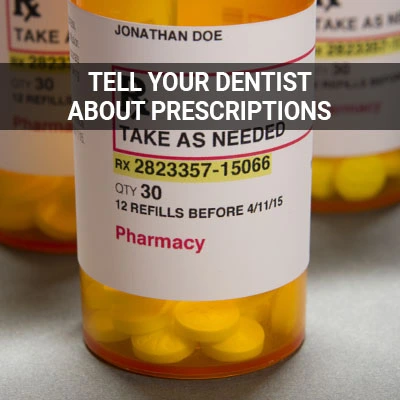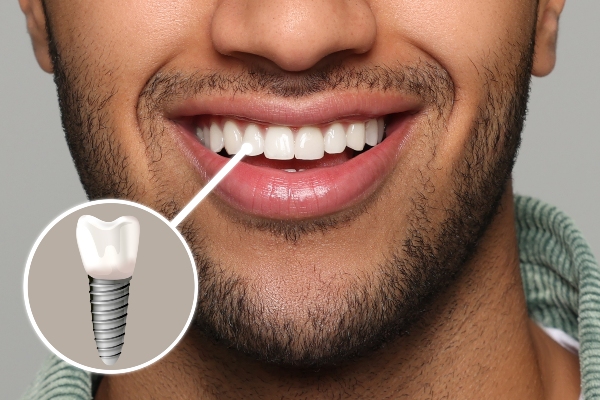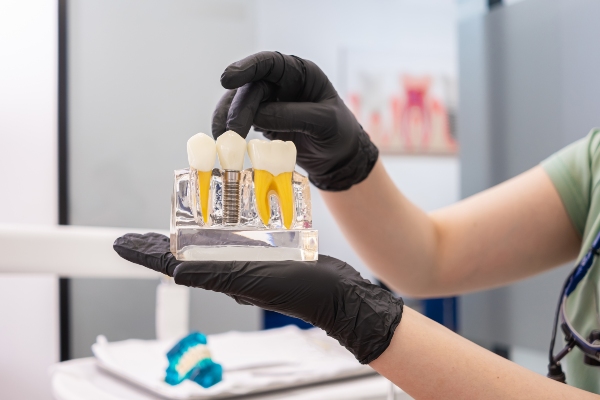Dental Health and Preexisting Conditions Austin, TX
Many people do not realize that the systems of the body are all interrelated. Preexisting conditions can affect dental health and vice versa. A complete health dentist can help you better understand the oral-systemic link and treat your overall health.
Oral-systemic coverage is available at Austin Lifetime Dental in Austin and the surrounding area. We are proud to offer complete health dentistry for preexisting conditions and more. Call us today at (512) 387-9049 to schedule an appointment or to learn more about our services.
Oral-Systemic Health and Preexisting Conditions
Gum disease, also known as periodontal disease, may be considered the primary component of the oral-systemic connection. The mouth is one of the primary entryways into the digestive and respiratory tracts, making it a natural breeding ground for bacteria. Most of such bacteria are harmless, but poor oral hygiene may allow them to multiply to dangerously high levels. At this point, the mouth becomes at risk for several oral infections. Inflammation will then enter the bloodstream, weakening the body's immune system.
Oral health is most notably linked to preexisting heart conditions and diabetes. However, others involve pneumonia, rheumatoid arthritis, and more. Research has shown that heart conditions and periodontitis have a positively correlated relationship and that diabetes and oral health exist bidirectionally. As such, receiving treatment for one condition often treats the other. Poor oral hygiene can increase elderly patients' risk of pneumonia. Furthermore, rheumatoid arthritis and periodontal disease are both linked to severe inflammation — making patients more susceptible to further health problems.
“Gum disease, also known as periodontal disease, may be considered the primary component of the oral-systemic connection.”
Managing Preexisting Conditions With Complete Health Dentistry
Just as oral health may affect other aspects of a patient's health, certain systemic conditions may also influence a patient's oral health. Neglecting one aspect of one's medical care can easily cause a never-ending cycle of health issues. As such, the very nature of the oral-systemic connection can sometimes necessitate changes to a patient's treatment plan — dental or otherwise. For instance, patients who have had a heart attack, heart failure, high blood pressure, stroke, or even chest pain (also known as angina) should seek their cardiologists' approval before scheduling any dental treatments.
Once approved, patients should tell their dentists about any heart conditions they have, procedures they have undergone, and medications they are taking to best allow the team to plan for any potential emergencies. This is true regardless of any systemic condition a patient may have. We can only provide optimal care if we know the full extent of our patients' unique medical histories and preexisting conditions. Otherwise, patients may run the risk of further aggravating both their oral and overall health.
“Neglecting one aspect of one’s medical care can easily cause a never-ending cycle of health issues.”
Preexisting Conditions, Complete Health Dentistry, and Insurance
Insurance companies typically define preexisting conditions as those conditions a patient had either been diagnosed with or received treatment for before enrolling in their current health plan. Examples include chronic illnesses, depression, diabetes, epilepsy, lupus, various forms of cancer, and more. Since January 1, 2014, it has been illegal for health insurance companies to refuse to cover or charge individuals more for their preexisting conditions, nor can they limit benefits for such conditions.
No insured person can be denied treatment for their preexisting conditions. As such, it is easier than ever for patients to find the right insurance policy for them. Still, certain health insurance plans may be a better fit for certain conditions. Those with chronic or ongoing illnesses, for instance, may benefit from choosing policies that allow more frequent care. Patients must have a comprehensive understanding of their medical needs when selecting a health insurance plan. For many, this can begin with a consultation with a complete health dentist.
“Patients must have a comprehensive understanding of their medical needs when selecting a health insurance plan.”
Check out what others are saying about our dental services on Yelp: Dental Health and Preexisting Conditions in Austin, TX
Treating Preexisting Conditions With Complete Health Dentistry
Studies have shown that general health has a bidirectional relationship with oral health, meaning that good health is impossible without a healthy mouth. Some conditions may put patients more at risk for periodontal disease. At the same time, periodontal disease may further aggravate certain conditions. As a result, patients require comprehensive treatment for optimal care. While traditional dentists typically treat isolated conditions, complete health dentists view a patient's health in its entirety. This involves educating the patient on their condition, how it manifested, other systemic diseases it may indicate, and how to address it at the root.
Furthermore, successful treatment must involve sufficient inter-provider communication. This is especially true since most primary care providers rarely ask patients about their oral health. With a patient's permission, we can work together with their medical team to best customize their treatment plan for their unique, individual needs. This allows us to further our patient-centered approach and address any warning signs of disease we may have otherwise missed. It can also assist all involved healthcare professionals in avoiding any potentially aggravating factors.
“Studies have shown that general health has a bidirectional relationship with oral health, meaning that good health is impossible without a healthy mouth.”
Questions Answered on This Page
Q. What preexisting conditions are linked to oral health?
Q. How do preexisting conditions affect dental care?
Q. How can I find an insurance plan that will cover my preexisting conditions?
People Also Ask
Q. What should patients do if they have sensitive teeth?
Q. How can someone find out what procedures their dental insurance covers?
Q. What are some dental health conditions that can form during pregnancy?
Frequently Asked Questions
Q. What are the risk factors associated with gum disease?
A. One of the main risk factors for gum disease is plaque from insufficient oral hygiene. Smoking, tobacco usage, and medications can also contribute to gum disease. People with certain genetic markers, systemic diseases, or a tendency to clench or grind teeth may also have an increased risk of developing gum disease.
Q. What are the symptoms of a cavity?
A. Cavity symptoms will vary depending on their location and their severity. The beginning stages of tooth decay may not cause any symptoms. However, as the decay progresses, people may experience tooth pain, sensitivity, visible holes or pits, tooth discoloration, or pain when biting.
Q. What happens if I do not have a cavity treated?
A. Cavities can lead to various complications, including pain, swelling, chewing issues, and teeth shifting. Without treatment, a cavity can progress into an abscess or a pocket of pus. This infection can spread and even become life-threatening in extreme cases.
Q. What are the symptoms of gum disease?
A. Healthy gums appear pink and fit tightly around teeth. People with gum disease may have red or purplish and swollen gums that bleed easily. Teeth may also appear longer as the gums recede and the periodontal pockets grow in size.
Q. What happens during scaling and root planing?
A. Scaling and root planing treats chronic gum disease. During scaling, we will remove the plaque from teeth and pockets between the teeth and gums. Root planing involves smoothing out the tooth roots to help the gums reattach to teeth.
Dental Terminology
Call Us Today
If you live in the Austin area, call 512-387-9049 for an appointment in our Austin office.
Helpful Related Links
- American Dental Association (ADA). Glossary of Dental Clinical Terms. 2025
About our business and website security
- Austin Lifetime Dental was established in 2022.
- We accept the following payment methods: American Express, Cash, Check, Discover, MasterCard, and Visa
- We serve patients from the following counties: Travis County
- We serve patients from the following cities: Austin, West Lake Hills, Barton Creek, Rollingwood, Lost Creek, Tarrytown, Hyde Park, Oak Hill, Austin Lake Hills and Bee Cave
- Norton Safe Web. View Details
- Trend Micro Site Safety Center. View Details
Back to top of Dental Health and Preexisting Conditions










